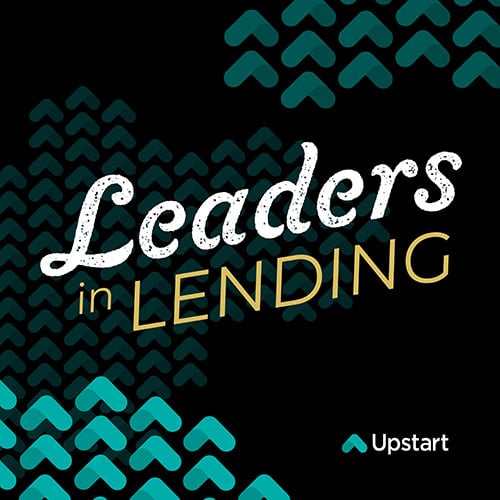Leaders in Lending | Ep. 108
Tackling the Rise of Fraud in Banking
Rakesh Mirajkar, Head of Consumer Bank Fraud and AML and Managing Vice President at Capital One joins us to examine the multi-pronged approach that countering bank fraud requires and how individual organizations can play their part.


GUEST SPEAKER
Rakesh Mirajkar
Rakesh Mirajkar is Head of Consumer Bank Fraud and AML and Managing Vice President at Capital One Bank. He has extensive experience in managing financial fraud, including credit card and bank fraud. In his current role, he leads the Customer Protection team at Capital One which manages fraud loss mitigation, fraud strategy and analytics, risk policies and limits and operations for all of the deposit portfolio. He is also one of the handful of Sr. Credit Officers at Capital One. Rakesh has been with Capital One for over 20 years and has experience in various roles. He started his career with the credit card fraud team in 2002 and has since played roles in product development for Upmarket internet portfolio, and then in leading the Collections early stage strategy. He has been with the Capital One banking division since 2010. He actively participates on various industry forums and associations such as the CBA Fraud Committee, BITS, EWS,CBA, MasterCard US FAC, BAI and ABA. Rakesh received his undergraduate degree in Chemistry from University of Delhi and his MBA from Indian Institute of Management (IIMA). Rakesh is married and has two daughters – 13 and 9 years old. Outside of work, Rakesh loves to spend time reading, playing poker and doing meditation.

ABOUT
CBA Live
Marking its 14th year in 2023, CBA LIVE is the must-attend annual event for the retail banking industry. Hundreds of senior bankers and industry leaders gather from across the country to experience this premier event. CBA LIVE offers top-notch programming tailored toward professionals motivated to learn new trends and share ideas with the most influential decision makers in the business.
Key Topics Covered
- The resurgence of fraud post-pandemic
- Why consumer engagement and education play a critical role in mitigating fraud
- The future of fraud-risk controls

“When we went into the pandemic, the banking industry saw a substantial dip in productivity, and that was because fraudsters were attracted by all the government funds that were available.”


EPISODE RECAP & SUMMARY
Fraud is on the rise — bad news for banks and customers alike.
In today’s digital world, criminals have more tools at their disposal than ever before. And financial institutions, government and consumers all have a part in combatting them.
In this conversation, Rakesh Mirajkar, Head of Consumer Bank Fraud and AML / Managing Vice President- Capital One joins us to examine the multi-pronged approach that countering bank fraud requires and how individual organizations can play their part.
We discuss:
- The resurgence of fraud post-pandemic
- Why consumer engagement and education play a critical role in mitigating fraud
- The future of fraud-risk controls
The resurgence of fraud post-pandemic
Fraud is on the fast track in the wake of increased digitization post-pandemic. With higher levels of automation, attackers target millions of accounts and attempt to move funds rapidly once inside. Their pace is at an all-time high.
Outside of directly hacking into institutions, scammers pose as sellers in online digital marketplaces — beware of concert ticket resales and pet purchases.
Scammers take advantage of consumer fear. What’s more unsettling than receiving a seemingly authentic letter from the IRS claiming they will send the FBI to your house due to unpaid taxes, and the only way out is sending money?
The crucial thing to remember is that the IRS is unlikely to send the authorities within a first warning, let alone due to one offense. Always check your personal IRS account balance before using any outside-provided payment software.
Though these scams may seem obvious, they can prove believable and detrimental under the right circumstances.
Why consumer engagement and education play a critical role in mitigating fraud
If a consumer knows the common signs and signals of a fraudulent claim or a scam in progress, the risk of suffering loss significantly decreases. The education of consumers does not fall to one institution alone — it should be a community effort meant to destabilize fraud on a large scale.
“We have been doing a bunch of campaigning and consumer education, both in-person in branches, and with emails reaching consumers where they are, telling them about common schemes and what to watch out for. We've seen a huge impact from those campaigns,” Mirajkar said.
Banks can help consumers flag suspicious transactions by sending them resources on common scams right then, and consumers can see for themselves if it applies to their situation.
Educating consumers does not have to be laborious workshops. Most times, all it takes is a well-timed resource. That effort can make all the difference.
The future of fraud-risk controls
Fraud-risk controls should be real-time. What does that look like? It may mean different outcomes for different establishments. Real-time for some may mean in seconds, while others may view it as a few minutes delayed. In the world of real-time, seconds matter.
“I was talking to a colleague from one of the banks, and they were having some fraud issues,” Mirajkar said. “I was asking them, ‘Don't you have real-time defenses?’ And her response was, “Yes, we do. But by the time this thing happens and we get it into our defenses, there's a 15-minute gap.’”
The future of fraud risk controls must match the speed of fraudsters, and with the explosion of technology and data, there is ample opportunity to create real-time controls that work.
“If your fraud controls are tremendous, you can enable consumers to do a lot more things,” Mirajkar said. “You can now allow real-time activity, whether it's wires or ACH or P2P transactions, and they can do everything sitting in their living room with a small device in their hand.”
The more autonomy an educated consumer has, the more control they can wield over fraud prevention, and the less likely they are to panic.
How are you setting your consumers up for success against scammers and fraud?
Stay tuned for new episodes every week on the Leaders in Lending Podcast.




